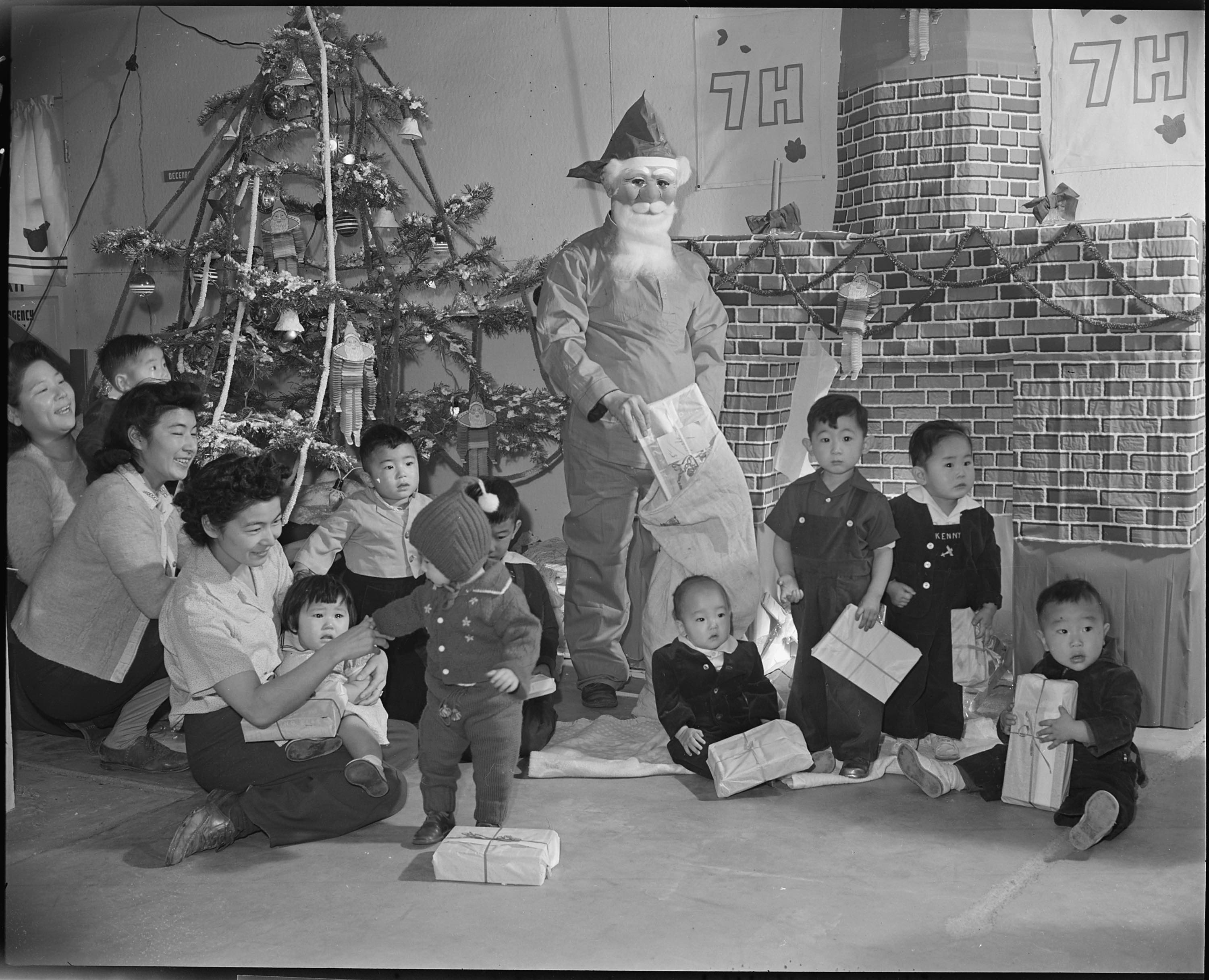Bible Ministry in Amache
ABS remembers the faithful witness of Japanese American Christians in relocation centers
As we celebrate Asian American and Pacific Islander Heritage Month this May, American Bible Society praises God for the work of Asian Americans and Pacific Islanders in the Bible cause. Over centuries, our brothers and sisters in these communities have carried God’s Word to waiting people across the United States and around the world.
Today, we reflect on the witness of Japanese American Christians who partnered with American Bible Society to spread God’s Word in federal internment camps during World War II.
Fellow Americans, Brothers in Christ
In February of 1942, the United States was weeks into World War II. The recent surprise attack on Pearl Harbor had heightened anti-Japanese sentiments among the American public and highlighted a fear of future national security threats. In response, President Roosevelt signed Executive Order 9066, which authorized the federal government to detain and relocate any person considered to be a threat to national security based on their ancestry. This order overwhelmingly impacted Japanese Americans living on the West Coast.
Over the next six months, more than 100,000 men, women, and children of Japanese ancestry were forced to evacuate their homes in West Coast states like California, Oregon, and Washington for 10 relocation centers in inland states. Of this number, an estimated 70,000 were American citizens without any legal charges against them. Many would remain in the centers until the end of the war.
In response to Japanese American internment, American Bible Society asked a critical question: “These, our fellow Americans, are also our brothers in Christ. What are we Christians doing for them?”

God’s Word in Amache
In 1943, Henry Ragatz, a writer for American Bible Society’s Record magazine, visited the Amache Relocation Center in Colorado. This camp housed approximately 7,000 people and “was surrounded by a fence with guard towers located at strategic places, and a detachment of U.S. soldiers stationed outside.” Groups of 20 people lived in barracks, sharing bathhouses, laundries, mess halls, and recreation halls. Residents organized their own schools, churches, clubs, and civic leadership.
As Ragatz met people living in the camp, he heard heartbreaking stories of how the relocation had impacted families. One Japanese Baptist minister was arrested and interned in New Mexico; his wife was detained in Texas; two of his daughters were detained in Colorado; one son was detained in Wyoming; and another son was detained in Arizona. The internment had stripped American citizens of their rights without due process of law. In addition, many had lost their properties, businesses, and most of their personal possessions due to the short notice they were given to evacuate their homes.
In spite of these injustices, those Japanese Americans interviewed by Ragatz “felt that, perhaps, in this way they were making their contributions to the nation’s war efforts.” It was common for young Japanese Americans living in relocation centers to enlist in the Military. In Amache, a group of 120 young men volunteered to serve around the time of Ragatz’s visit. Other residents were granted leave from the camp to attend school or to work as doctors, farmers, teachers or clerks, each supporting war efforts in their own way.
For those who remained in the camp, there was a different opportunity to serve. There were just 16 Japanese pastors caring for approximately 1,500 Christians, along with their neighbors of other religions. The pastors offered church services in both English and Japanese, and while Ragatz noticed that almost every person who attended carried a Bible, there was a distinct need for God’s Word among other residents of the camp.
American Bible Society provided 412 Bibles to the Japanese American pastors in the camp, who offered their neighbors God’s Word in partnership with outside volunteers. Their report was encouraging: “Nothing could give us better reception into the homes.” And the gratitude felt by their community was expressed to Ragatz in a letter from one of the center’s residents: “There is no doubt that their works are profitable to us all.”
Generosity Given, Generosity Received
By May of 1943, American Bible Society’s War Emergency Fund had supplied 749 Bibles, 1,635 New Testaments, and 1,055 Gospels to eight of the 10 relocation centers. To Japanese American pastors and Christians, this support went beyond supplying God’s Word; it also communicated God’s love. One minister wrote a letter describing the impact of the Bibles his camp had received:
We are truly grateful to the Bible Society and other Christian agencies in America which bring home to us the knowledge that Christian love is alive. Our children are being reminded that not all of America is behind this confinement of citizens in concentration camps, and that friends are truly concerned about them, and are trying to help them make life here as tolerable as possible. Gifts at Christmas did more to raise the morale of the camp than any other single gesture. These Bibles will prove to the youngsters that they are being remembered.

Even in the face of hardship and injustice, Japanese American Christians supported the spread of God’s Word within the relocation centers and beyond. Their dedication and lasting example is evident in a gift received by American Bible Society after Ragatz’s visit. During a church service, one congregation—many of whom earned just $12-19 per month working for the Amache camp authorities—took up an offering of $11.81 for American Bible Society. Their pastor wrote: “It is our wish that you use this small sum for the furtherance of your good work.”
Blog Sources
- “Japanese-American Internment During World War II.” National Archives. https://www.archives.gov/education/lessons/japanese-relocation
- Ragatz, Henry. “Christian Democracy Works!” Record. May, 1943, pages 75-76. American Bible Society Archives.

Elisabeth Trefsgar
Elisabeth Trefsgar is a content specialist for American Bible Society. She has made a home in New Jersey and Sofia, Bulgaria, and is always on the lookout for the next adventure. She is passionate about seeing communities around the world flourish through the power of God's Word and the efforts of the local church. When she isn't writing, you can find her reading good stories, photographing local sights, and spending time with friends.
Thanks to the support of our faithful financial partners, American Bible Society has been engaging people with the life-changing message of God’s Word for more than 200 years.
Help us share God's Word where needed most.
Sign up to stay in touch with how God is changing lives with his Word!









